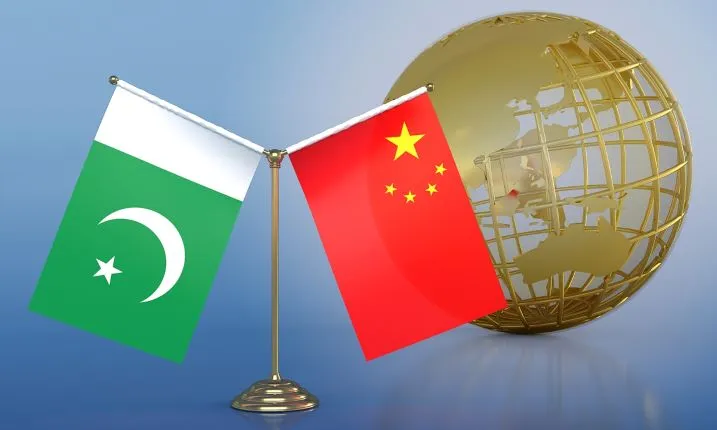The recent imposition of a USD 2.48 million fine by a Pakistan civil court on China National Petroleum Corporation for allegedly violating the contract signed with the Petroleum Exploration (Pvt.) Ltd. has again brought forth the increasing economic mistrust between the two countries accentuated by the financial crisis in Pakistan. Already many projects under the CPEC, like the Main Line1 (ML-I) — railway line between Karachi and Peshawar — and the Karachi Circular Railway (KCR), have been stalled and have become financial liabilities.
There have also been unresolved differences between the two governments, which have stalled many projects. China has reportedly slowed investments in large infrastructure projects as these projects are vulnerable to local politics and returns on investment are delayed. The differences though not new, have been kept behind closed doors.
Terror attacks on Chinese interests have also had a negative impact on economic cooperation. Pakistan’s financial woes have further decreased its capacity to fulfil its part of financial obligations in various projects.
China has also been accused of dubious practices in Pakistan, like signing fraudulent deals with most Independent Power Producers (IPP) and receiving tax exemptions. China has repeatedly refused to renegotiate the power purchase agreements worth USD 3 billion on the pretext that its commercial banks were not in a position to revise any of the clauses of the agreement reached earlier with the Pakistan government.
A Pakistani report suggested that Chinese contractors were overcharging Islamabad by USD 3 billion on two CPEC power plants. There are also concerns that the deals were badly negotiated, too expensive or overly favoured China.
The Pakistani population has realised that the Chinese loans for dubious projects will do little for the local economy as China-funded projects are given to Chinese companies and employees with high-interest loans.
Pakistan has already fallen into the Chinese debt trap, and its economy is in a deep mess. Due to increasing reliance on China, Pakistan is facing massive debt, and dwindling cash and reserves. Pakistan reportedly owes USD 30 billion, or one-third of its external public debt to China and Chinese commercial banks.
Between July 2021 and March 2022, over 80 per cent of Pakistan’s bilateral debt service went to China. However, Pakistan has failed to repay the debt and has asked for debt relief. Recently Pakistan’s Defence Minister Khawaja Asif recently stated that Pakistan has already defaulted.
Last year, over 30 Chinese companies involved in energy, communication and railways, had threatened to shut down their operations unless payments were made. Syed Tariq Fatemi, Special Assistant to Pak PM warned that overdue payments to the Chinese IPPs have increased to USD 1.5 billion.
Moreover, Chinese projects and financing have stroked public protests. Police in Gwadar recently imposed emergency measures and dismantled a protest camp that had obstructed operations at the port.
Pakistan has also not benefited from the FTA signed with China. China’s exports to Pakistan outpaced the latter’s exports to China, resulting in a ballooning trade deficit with China. While the trade deficit between the two countries grew by 109 per cent between 2003 and 2006, it grew by a staggering 535 per cent after the FTA came into effect.
The FTA has been repeatedly been criticised by businessmen in Pakistan, who believe that Pakistan had negotiated poorly, both in terms of getting access to the products that were better placed to export to China and in granting access to Chinese goods that have flooded the Pakistani market.
They have called for reviewing the FTA. According to Arif Ahmed Khan, the former Chief Executive of the Trade Development Authority of Pakistan (TDAP), non-tariff barriers are the main obstacle to Pakistani exports to China. Pakistani exporters also face issues like phytosanitary barriers to their exports to China.
The opaque nature of the projects under the BRI, limiting scrutiny, gives Chinese companies a platform to flout rules and regulations in vulnerable countries. Contractors have inflated costs, leading to cancelled projects and political backlash.
In 2020, the World Bank barred China Electric Design and Research Institute Co. Ltd. from participating in bank-financed projects for up to 18 months over fraudulent practices in a power project in Zambia.
In December 2021, the ADB blacklisted China CMC Engineering, Northwest Civil Aviation Airport Construction Group and China Harbour Engineering for violating integrity rules, barring them from participating in Nepal’s key airport infrastructure development project.
China Harbour Engineering was publicly accused by Bangladeshi Government Ministers of offering bribes to Bangladeshi officials in connection with a construction project. State Council data show that, despite legal requirements, half of the Chinese companies in BRI countries were neglecting social impact assessments, a third were not conducting environmental impact assessments and most were ignorant of local regulations.
Chinese companies and workers are notorious for frequently transgressing the labour standards of the countries in which they operate. A lack of due diligence, corruption and a disregard for indigenous rights and the environment have characterized Chinese projects abroad. As the Pakistani economy is heading towards an economic catastrophe, China’s free hand in meddling in its economic matters would further deepen mistrust among ordinary Pakistanis.

